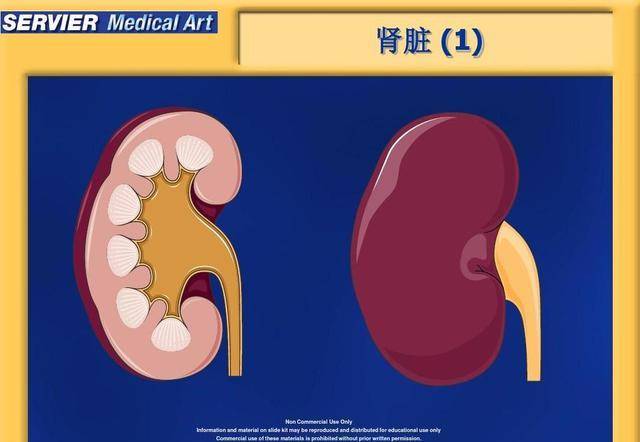Traditional Chinese medicine believes that the kidneys are the foundation of innate essence, maintaining the normal functioning of the body, aiding in metabolism, eliminating toxins and waste, and safeguarding overall health.
Especially for some male friends, they pay great attention to kidney maintenance to showcase their masculine charm. The issue of kidney diseases is becoming increasingly serious, posing a threat to people’s health. Therefore, they try various methods to nourish their kidneys.
A 52-year-old man insisted on eating oysters every day to tonify the kidneys, enhance vitality. How did it work out?
[Real case]
Mr. Zhang, 52 years old this year, has been feeling physically tired and fatigued recently, especially after turning 50. His condition worsened, and his mental state deteriorated.
Even when hanging out with friends, he appeared weak and listless, leading friends to tease him: “Are you deficient in kidney qi?” Mr. Zhang strongly resisted this, always responding heatedly.
However, Mr. Zhang also realized that his health was deteriorating, often feeling tired and fatigued. He sought some rural methods to tonify his kidneys, and later learned that eating oysters could strengthen kidney qi and promote virility.
So, Mr. Zhang bought many oysters and consumed them daily for half a year, but to his surprise, the results were not as ideal as he had imagined.
Instead of tonifying the kidneys and enhancing virility, Mr. Zhang experienced joint pain and difficulty urinating after eating oysters. Helpless, he visited the hospital for a check-up and found that his uric acid level had reached 680 μmol/L, indicating hyperuricemia. This required active treatment, leaving Mr. Zhang feeling puzzled. Aren’t oysters supposed to tonify yang? Why did they lead to high uric acid levels?
According to the ancient book “Compendium of Materia Medica,” oysters do have yang-tonifying effects, suitable for individuals with kidney discomfort. Due to their rich zinc content, they can increase sperm count and quality, as well as tonify the kidneys and yang.
However, oysters are best consumed as food and not as a medicinal supplement for tonifying kidney qi. Furthermore, being seafood, oysters have a relatively high purine content. Excessive intake may elevate uric acid levels, increasing the risk of developing gout.
Moreover, being a cooling food, oysters with their high cholesterol content can burden blood vessels, posing significant health impacts. Therefore, excessive consumption of oysters is not recommended.
Weak kidney qi in men, these three factors may be contributing:
1. Overtime work and staying up late: Modern men face high work pressure and often work overtime to meet deadlines, depriving their bodies of sufficient rest. The kidneys, as organs that work continuously, bear significant burdens from prolonged overtime work and staying up late, potentially leading to weakened kidney qi.
2. Poor dietary habits: Modern customs, especially lack of exercise and uncontrolled eating habits—such as consuming high-salt, high-fat, high-sugar, high-calorie foods, or irregular eating habits and binge eating—can weaken kidney qi.
3. Excessive sexual activity: Excessive sexual activity depletes essence excessively, and male weak kidney qi is often related to excessive sexual activity. Not only does excessive sexual activity affect mental state, but it also causes male energy loss, leading to weakened kidney qi.
Weak kidney qi manifests in specific bodily occurrences:
1. Physical fatigue: The kidneys govern essence, and weak kidney qi can result in physical fatigue, mental weariness, and low spirits.
2. Low vitality: The kidneys are the foundation of innate essence, and insufficient kidney qi leads to physical and mental fatigue, low spirits, mood swings, and even depressive symptoms.
3. Sore and weak lower back and knees: The kidneys govern the bones, and insufficient kidney qi results in sore and weak lower back and knees, manifesting as back and lumbar pain, weak knees, and lack of strength.
4. Edema: The kidneys regulate water metabolism, and weak kidney qi can cause fluid imbalance and lead to edema.
5. Tinnitus and vertigo: The kidneys connect to the ears, and weak kidney qi can result in tinnitus, decreased hearing, as well as dizziness, blurred vision, and other symptoms.
6. Impotence and premature ejaculation: The kidneys are essential sexual organs, and insufficient kidney qi affects their function, resulting in impotence, premature ejaculation, and other conditions.
7. Frequent nocturia: The kidneys govern fluids, and the bladder reflects the condition of the kidneys. Weak kidney qi can lead to frequent nocturnal urination and even urinary incontinence.
Knowledge expansion—Methods for tonifying the kidneys and strengthening yang:
1. Dietary tonification: Include kidney-tonifying foods in daily meals, such as lean meat, eggs, black beans, black fungus, longan, etc.
2. Exercise for kidney tonification: Physical exercise and moderate aerobic activities like walking, Tai Chi, yoga, etc., can enhance kidney function.
3. Medicinal diet for kidney tonification: Consume herbal dishes containing medicinal ingredients, such as stewed chicken with wolfberries, braised oxtail with prepared rehmannia root, for potent kidney-tonifying effects.
4. Traditional Chinese medicine for kidney tonification: Traditional Chinese medicine treatment is often used for kidney tonification, with commonly used herbs like prepared rehmannia, psoralea fruit, cistanche, etc.
5. Mental cultivation: Maintaining a positive mindset reduces the burden on the kidneys, boosts kidney health. Engage in relaxing leisure activities, listen to music, admire scenic views, etc.
6. Health maintenance for the kidneys: Cultivate good lifestyle habits, regularly undergo kidney checks, avoid staying up late, quit smoking and drinking, maintain a regular schedule, all aiding in kidney health.
Is there anything else you would like to add? Feel free to share your thoughts below.


